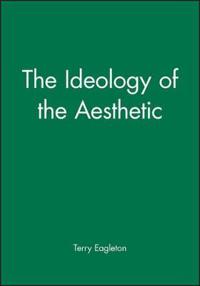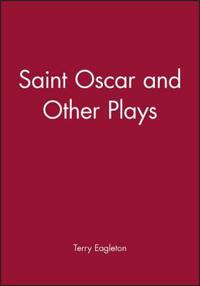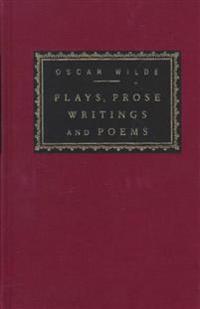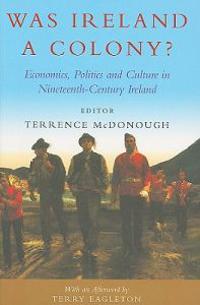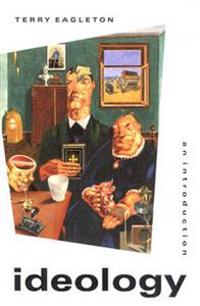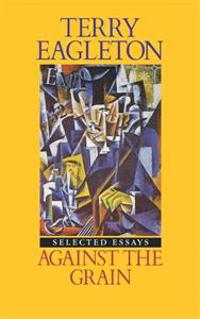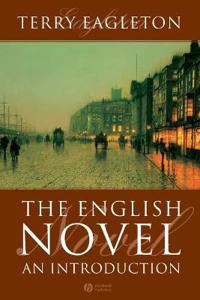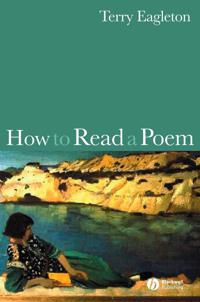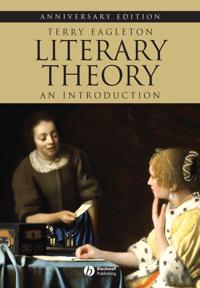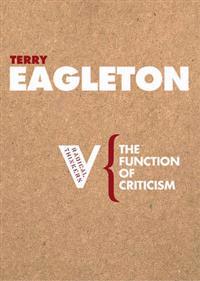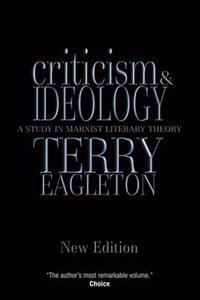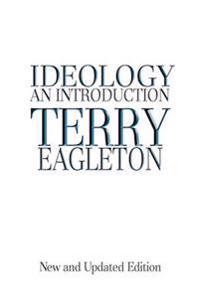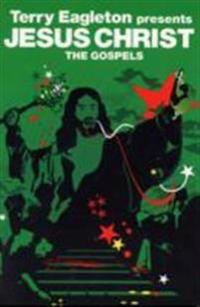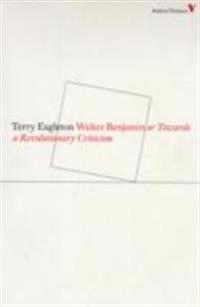The Ideology of the Aesthetic (Häftad)
avTerry Eagleton
ISBN: 9780631163022 - UTGIVEN: 199101The Ideology of the Aesthetic presents a history and critique of the concept of the aesthetic throughout modern Western thought. As such, this is a critical survey of modern Western philosophy, focusing in particular on the complex relations between aesthetics, ethics and politics. Eagleton provides[...]
Saint Oscar and Other Plays (Pocket)
avTerry Eagleton
ISBN: 9780631204534 - UTGIVEN: 1997-05Terry Eagleton's plays in this first collection of his work for the theatre - "St Oscar", "The White", the Gold and the Gangrene", "Disappearances", and "God's Locusts" - transgress what he terms 'the jealously patrolled frontiers between 'art' and 'idea". In spirit they owe at least as much to Osca[...]
Scholars & Rebels in Nineteenth-Century Ireland (Pocket)
avTerry Eagleton
ISBN: 9780631214465 - UTGIVEN: 2000-01-28Idea of culture (Pocket)
avTerry Eagleton
ISBN: 9780631219668 - UTGIVEN: 2000-03-01Focuses on discriminating different meanings of culture, as a way of introducing the debates around it. This book offers a critique of postmodern 'culturalism', arguing instead for a more complex relation between Culture and Nature, and trying to retrieve the importance of such concepts as human nat[...]
Plays, Prose Writings and Poems (Inbunden)
avOscar Wilde, Cscar Wilde, Terry Eagleton
ISBN: 9780679405832 - UTGIVEN: 199111Gathers Wilde's essays and poems along with his novel, The Picture of Dorian Gray, and his plays, "Lady Windermere's Fan," and "The Importance of Being Earnest"[...]
Was Ireland A Colony? (Pocket)
avTerrence (EDT) McDonough, Terry (AFT) Eagleton, Terrence (EDT) McDonough
ISBN: 9780716528067 - UTGIVEN: 2005-05Raymond Williams (Pocket)
avTerry (EDT) Eagleton
ISBN: 9780745603841 - UTGIVEN: 1991-01Raymond Williams is widely acknowledged to be one of the most original and influential thinkers of the post--war era. He wrote extensively across a wide range of subjects: from drama and the novel to politics, popular culture and mass communications. He was also a major novelist, well--known for boo[...]
Terry Eagleton: A Critical Introduction (Övrig)
avJames Smith
ISBN: 9780745636108 - UTGIVEN: 2008-05-23Terry Eagleton is one of the most influential contemporary literary theorists and critics. His diverse body of work has been crucial to developments in cultural theory and literary critical practice in modern times, and for a generation of humanities students his writing has been a source of both pr[...]
Ideology (Häftad)
avTerry Eagleton
ISBN: 9780860915386 - UTGIVEN: 1991-04Unravels the many different definitions of ideology, explores the history of the concept from the Enlightenment to postmodernism, and interprets the works of major philosophers[...]
Against the Grain (Pocket)
avTerry Eagleton
ISBN: 9780860918417 - UTGIVEN: 1986-07These essays (and a ballad) have their origins in Terry Eagleton's continuing engagement with the possibilities of a literary criticism that is both materialist and open to diverse currents of thought in the human sciences. Eagleton's combative intelligence here explores the encounter between Marxis[...]
The English Novel: An Introduction (Inbunden)
avTerry Eagleton
ISBN: 9781405117067 - UTGIVEN: 2004-08-31The English Novel (Häftad)
avTerry Eagleton
ISBN: 9781405117074 - UTGIVEN: 200408Written by one of the world's leading literary theorists, this book provides a wide-ranging, accessible and humorous introduction to the English novel from Daniel Defoe to the present day. It covers the works of major authors, including Daniel Defoe, Henry Fielding, Samuel Richardson, Laurence Stern[...]
How to Read a Poem (Häftad)
avTerry Eagleton
ISBN: 9781405151412 - UTGIVEN: 200610Lucid, entertaining and full of insight, How To Read A Poem is designed to banish the intimidation that too often attends the subject of poetry, and in doing so to bring it into the personal possession of the students and the general reader. * Offers a detailed examination of poetic form and its rel[...]
Literary theory - an introduction (Pocket)
avTerry Eagleton
ISBN: 9781405179218 - UTGIVEN: 200802First published in 1983, Literary Theory: An Introduction is probably the best-selling work of literary criticism in the world today. It propelled its author to a position of such influence and controversy within the British academy that even Prince Charles once described him as "that dreadful Terry[...]
Trouble with Strangers: A Study of Ethics (Häftad)
avTerry Eagleton
ISBN: 9781405185721 - UTGIVEN: 2008-09-30Trouble with Strangers: A Study of Ethics (Inbunden)
avTerry Eagleton
ISBN: 9781405185738 - UTGIVEN: 2008-10-31The Function of Criticism (Häftad)
avTerry Eagleton
ISBN: 9781844670550 - UTGIVEN: 200510A history and critique of the last 200 years of cultural criticism, form Addison and Steele to Barthes and Derrida, by Britain's most stylish critic.[...]
Criticism and Ideology (Häftad)
avTerry Eagleton
ISBN: 9781844670802 - UTGIVEN: 200607A new edition of a classic treatise on literary theory seeks to develop a sophisticated relationship between Marxism and literary criticism, evaluating the key works of such figures as Lenin, Trostsky, and Sartre as well as canonical writers including Charles Dickens and T. S. Eliot to demonstrate h[...]
Ideology (Häftad)
avTerry Eagleton
ISBN: 9781844671434 - UTGIVEN: 200708In the modern world, ideology has never before been so much in evidence as a fact and so little understood as a concept. In a book designed both for newcomers to the topic and for those already familiar with the debates, Terry Eagleton unravels the many different meanings of ideology, and charts the[...]
Jesus Christ (Häftad)
avTerry Eagleton
ISBN: 9781844671762 - UTGIVEN: 200710This volume in the new "Revolutions" series presents Jesus Christ as a figure akin to revolutionaries like Robespierre, Marx, and Che Guevara. In this new presentation of the Gospels, Terry Eagleton makes a powerful and provocative argument for Jesus Christ as a social, political and moral radical, [...]
Walter Benjamin (Häftad)
avTerry Eagleton
ISBN: 9781844673506 - UTGIVEN: 200905Eagleton is second to none among cultural critics writing in the English language today. --Guardian

